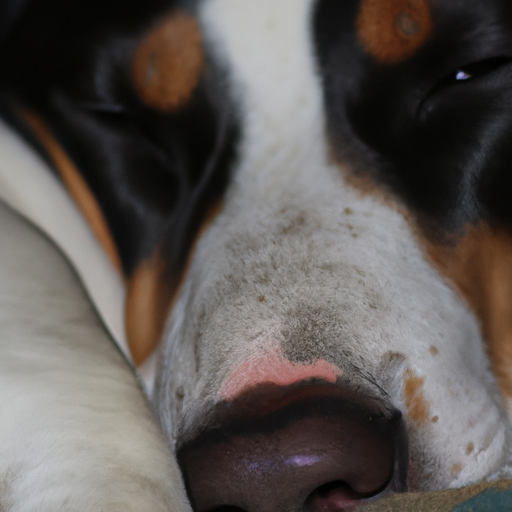Understanding Your Dog’s Breathing Patterns
As a caregiver, you’re naturally attuned to the rhythms and habits of those in your care, including your beloved canine companion. Paying attention to your dog’s normal breathing rate, typically between 15 to 30 breaths per minute, can help you detect any changes that could indicate potential health issues. You might have noticed your dog breathing rapidly during sleep and wondered if this is a cause for concern. Generally, it’s not uncommon for dogs to breathe quickly while sleeping.
The Science Behind Rapid Breathing in Dogs
Rapid breathing in dogs, known as tachypnea, can occur for several reasons. Understanding these reasons can help you better care for your furry friend:
-
Dreaming: Just like humans, dogs undergo different stages of sleep, including REM (Rapid Eye Movement) sleep, the stage in which dreaming occurs. As dogs dream, they may exhibit rapid breathing, whining, or twitching.
-
Heat regulation: Dogs don’t sweat like humans do. Instead, they pant or breathe quickly to cool themselves down. This is more common during hot weather or after exercise but can occur during sleep as well.
-
Stress or excitement: Dogs can also breathe quickly due to stress or excitement, even during sleep. If their sleep environment has recently changed or they’ve experienced an exciting day, they could breathe more rapidly than usual.
Remember, while these reasons are normal, excessively fast or labored breathing can be a sign of health problems, so it’s important to consult your vet if you’re concerned.
| Normal Breathing | Rapid Breathing |
|---|---|
| 15-30 breaths per minute | More than 40 breaths per minute |
| Regular, unlabored | Rapid, shallow, and labored |
| No noise or distress | Possible noise, signs of distress |
How You Can Help
As a devoted caregiver, there are steps you can take to ensure your dog’s comfort and health.
- Keep your dog’s sleeping area calm and quiet to minimize stress and encourage restful sleep.
- Regular exercise can help regulate your dog’s breathing patterns.
- Always provide ample fresh water to ensure your dog is well-hydrated.
- Regular vet check-ups can help detect any potential health issues early.
When to Seek Medical Attention
While rapid breathing during sleep is generally not a cause for concern, there are situations where it may signal an underlying health issue. If the rapid breathing is accompanied by other symptoms such as coughing, lethargy, loss of appetite, or bluish gums, seek veterinary care immediately.
Frequently Asked Questions
Q: Is it normal for puppies to breathe fast while sleeping?
A: Yes, puppies tend to breathe faster than adult dogs, even while sleeping, due to their higher metabolic rate.
Q: My dog is breathing fast but not panting, should I worry?
A: If your dog is breathing fast but not panting and there are no other signs of distress, it’s likely not a cause for concern. However, always consult your vet if you’re worried.
Q: What is the normal breathing rate for dogs?
A: The normal breathing rate for dogs is typically between 15 and 30 breaths per minute.
Remember, you’re the one who knows your dog best. Trust your instincts and if something doesn’t feel right, don’t hesitate to seek professional advice.



